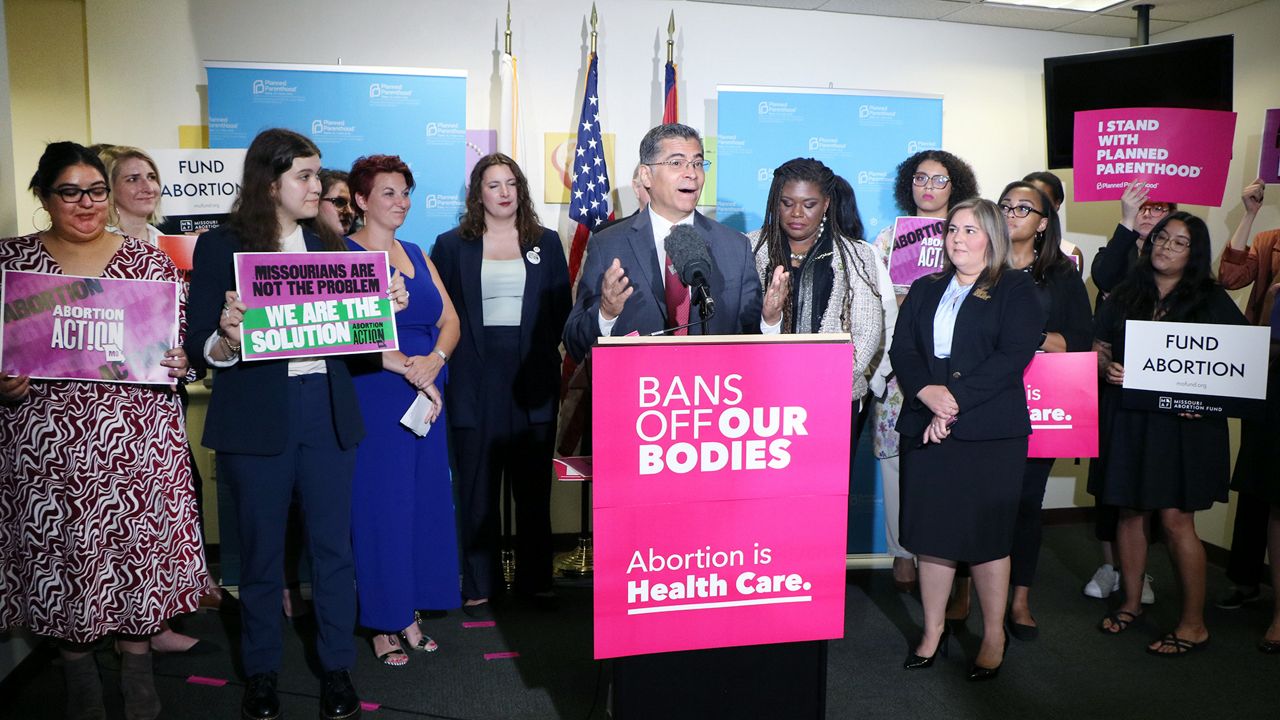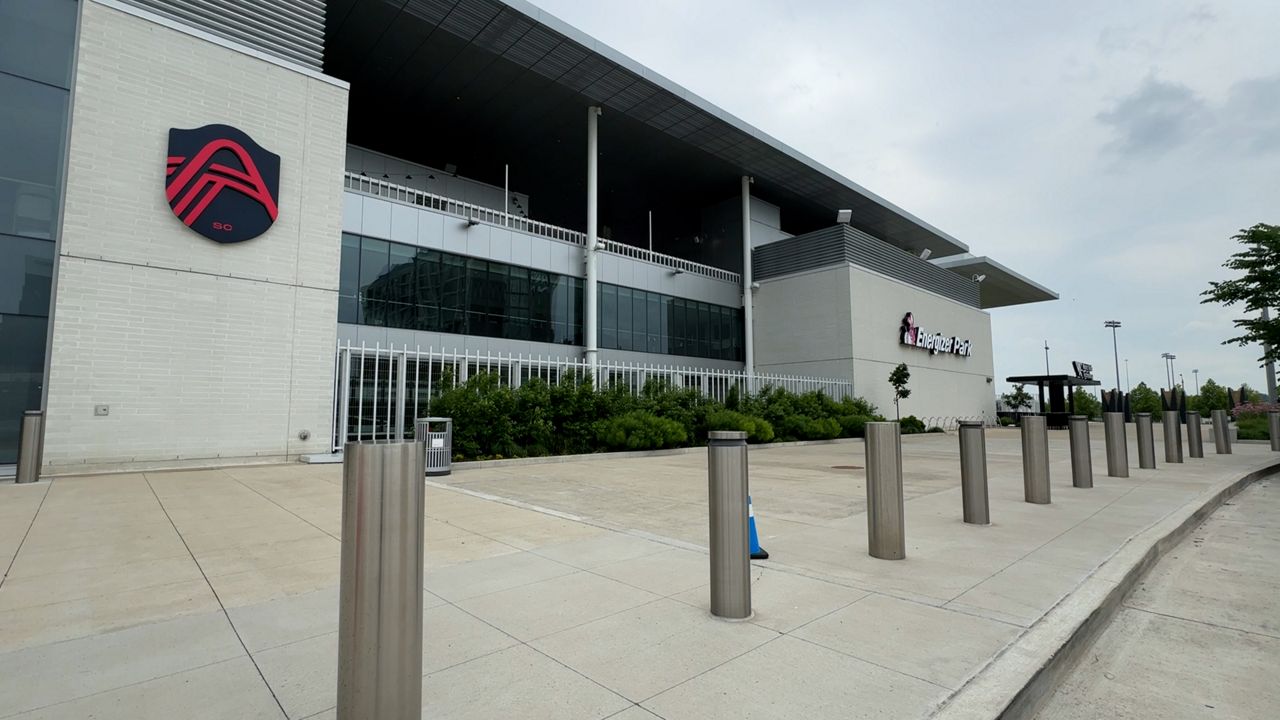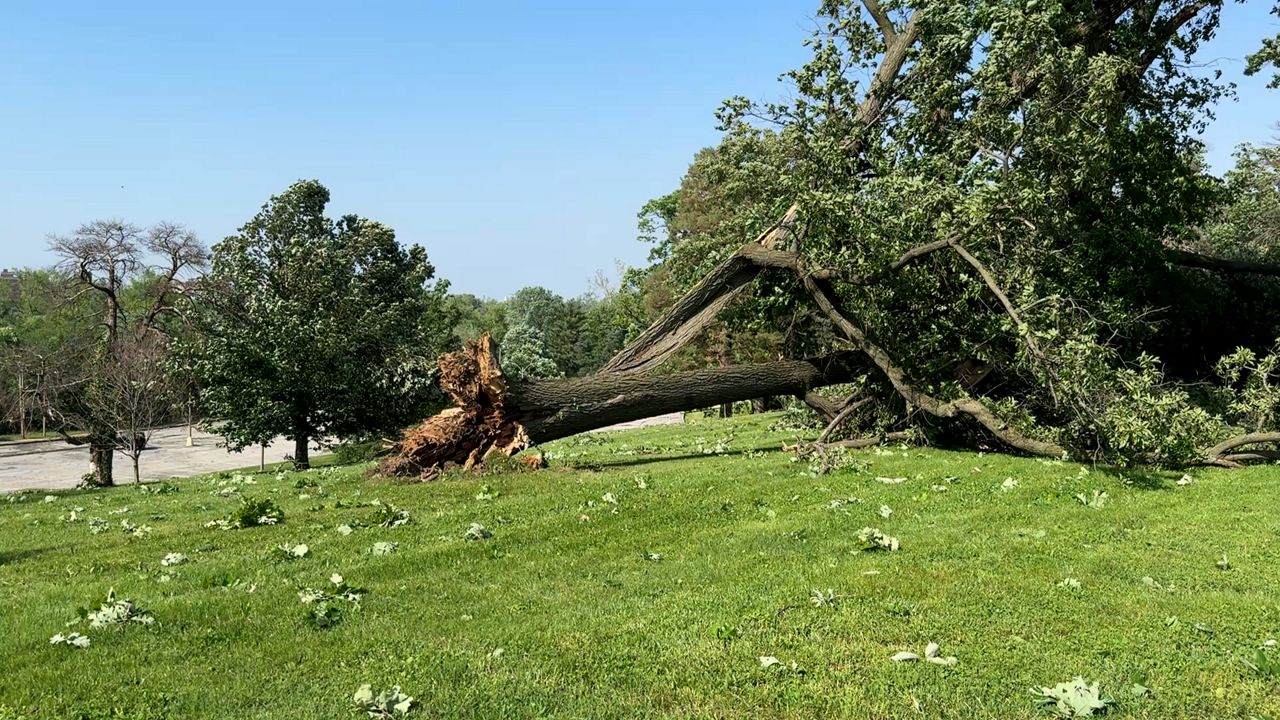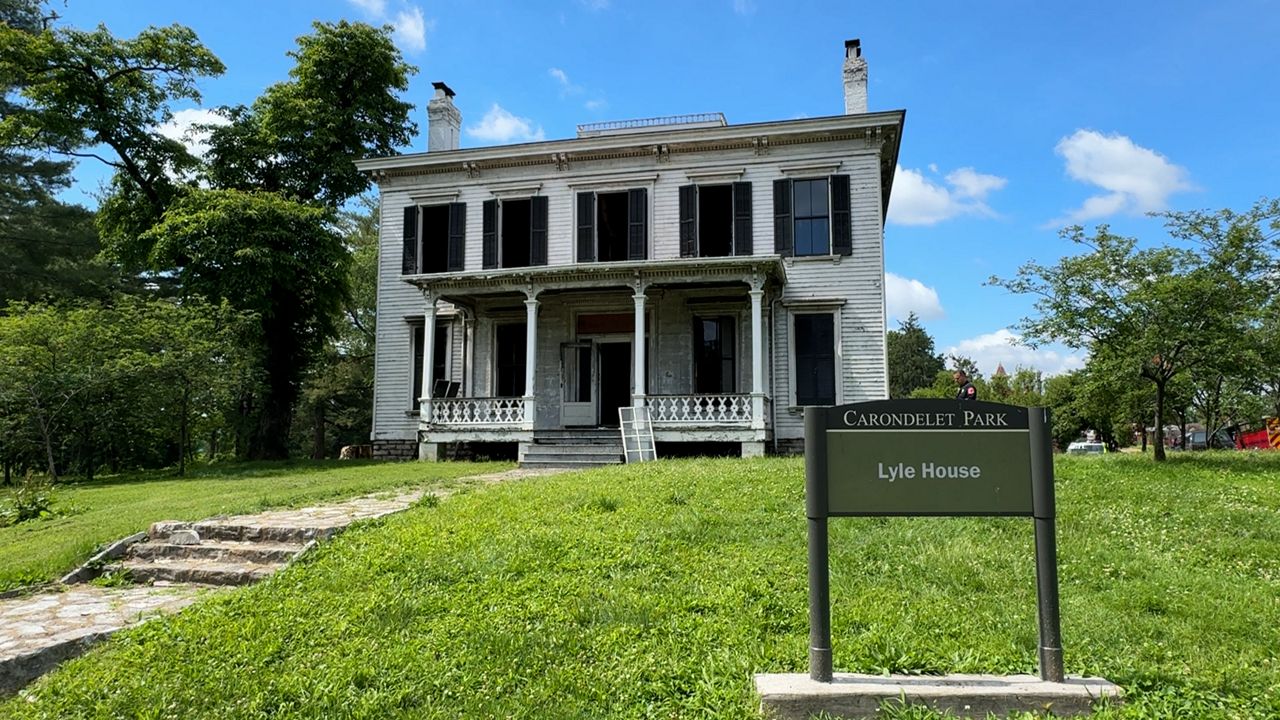ST. LOUIS — “Don’t say that you’re having a miscarriage, you could go to jail. Don’t hesitate to tell them that you’re bleeding, you could die,” Rev. Dr. Love Holt told herself when she arrived at a Missouri emergency room earlier this year.
The mother of five was one of several who shared their abortion experiences Friday morning during a roundtable at Planned Parenthood Central West End Health Center.
Saturday, June 24, marks the one-year anniversary of the U.S. Supreme Court ruling in Dobbs v. Jackson Women's Health Organization, the decision which overturned the 1973 Roe v. Wade ruling that protected the right to an abortion until fetal viability, which is generally considered to be around 23 or 24 weeks of pregnancy, according to the Associated Press.
Once Holt learned she was eight weeks pregnant, she tried to make an appointment to receive medication for an abortion. Holt said appointments available were three to four weeks in advance, which could put her too far along for the abortion pill.
After researching, she found a resource that delivered the medication within a few weeks, however, Holt said she had to reorder after her package was stolen. Eighteen days later, the medication arrived when Holt was 13 weeks and six days along.
“I still took the pills out of desperation,” she said, adding that she wanted to move forward with elevating her life as she had just started an “amazing” job, moved and there were changes with her family settings.
“A baby just didn’t fit into the program,” Holt said.
After taking the pills, Holt said she experienced contractions, bleeding, and passed tissue.
“It’s extremely traumatic, I couldn’t believe the things I was seeing coming out of my body,” she said.
She continued to bleed out and passed out in her car where her mother found her. After arriving at the ER, she told health providers that she did not know what was going on and that she thought she may be pregnant.
Holt rushed to a Catholic hospital for a dilation and curettage procedure operation where she said her stay was short.
“I didn’t even have eight hours to recover, and they were ushering me out after telling me that I can go to the funeral for my fetal issue, which made me very uncomfortable,” Holt said.
“When I went to home to heal myself, I just reflected on the thousands of Black women who are going to experience this at the hands of the Dobbs decisions, and the thousands of other birthing people who will die and will be persecuted for having a single miscarriage and going to the hospital.”
Friday’s roundtable included the U.S. Department of Health and Human Services (HHS) Secretary Xavier Becerra, HHS Assistant Secretary for Health Admiral Rachel Levine, HHS Director of Civil Rights Melanie Fontes Rainer, Director of the Department of Healthcare and Family Services, Illinois, Theresa Eagleson, U.S. Rep. Cori Bush, D-St. Louis, local stakeholders, patient advocates, and health care providers.
The roundtable followed a press conference where Becerra discussed how abortion bans are causing what he said is a public health crisis nationwide and how the Biden-Harris administration has been working to protect and expand access to reproductive health care.
“The Dobbs decision has inflicted real trauma on Americans,” Becerra said. “I think it’s clear, the Dobbs decision has turned health care for women fundamentally upside down.”
“A decision on healthcare that should reside first and foremost with the person who can make the best judgment about her care has been stripped from that American and now (has) been handed to politicians.”
While the Dobbs decision “has done some real damage to our country,” Becerra said “it did not defeat us.”
“We will move forward,” he said. “We are determined to make sure that every person who needs abortion care services access that care that they need. Dobbs will not deter us. Dobbs gave us a reason to fight harder.”
Rep. Bush shared her own abortion experience and discussed legislation, including Protect Sexual and Reproductive Health Act, that would provide federal grants to women who travel for reproductive care, and the Protecting Access to Medication Abortion Act that would ensure people access to medication for abortions, among other legislation.
“Abortion bans are a death sentence. We know that an abortion ban does nothing to stop people from needing abortions, it only forces more people into dangerous and life-threatening situations,” Bush said.
“Abortion bans are systemic discrimination and racism in action. We know that abortion bans disproportionately impact and harm Black and Brown, and LQBTQ+ people, people with disabilities, and low-income folks, and young people.”
St. Louis Planned Parenthood officials also spoke about their continued effort to provide reproductive health care and guide patients across state lines for abortion care.
No state in the country saw a bigger immediate impact from the Dobbs decision from the United States Supreme Court than Missouri.
Within minutes of the decision announced June 24, 2022, that overturned the existing federal precedent on abortion, Missouri Gov. Mike Parson signed a proclamation that activated a 2019 law that included a “trigger” clause to outlaw all abortions except for medical emergencies in the event the high court overturned Roe v. Wade.
The trigger clause did not include exceptions for rape or incest.
In the year since the Dobbs decision, advocates for abortion rights in Missouri have unsuccessfully sought to have the state clarify the definition of a medical emergency. State health officials have referred to the language in state statutes, language critics say is vague.
The Associated Press reported in May that a Joplin hospital violated a federal law when it refused to provide an abortion for a woman who went into premature labor that endangered her life.
The woman survived.
Midwest Access Coalition (MAC) is a nonprofit formed in 2015 that financially supports those who travel for abortion care and helps coordinate travel, lodging and appointments.
In 2021, the organization served 800 clients, spending a total of $277,000 in practical support, non-staff costs. The number of clients more than doubled in 2022, having served 1,620 and spending more than $650,000, according to Alison Dreith, director of strategic partnerships.
In 2023, the organization is experiencing 50 more patients per month than in years past. So far this year, MAC has already served 921 clients.
Dreith said the way clients choose their clinic has changed. Prior to Dobbs, clients who would shop around for the cheapest price to save money. Back then, someone could schedule an abortion appointment in 24 hours.
Since that is no longer an option, clinics are booked out about three weeks in advance. So, clinics are now looking for the earliest appointment available.
“They’re so afraid of someone discovering their pregnancy that they just want it over with. They’re sure of their decision and they don’t want to wait three weeks,” Dreith said. “If they wait three weeks, the price of the procedure goes up and whatever else life throws at them in that three-week period.”
MAC had previously served mostly Midwestern states and since the fall of Roe, clients have come from southern states. In 2021, the organization served seven clients from Texas and as of June 15, 2023, the MAC has helped 311 people from Texas.
“I don’t have any other states that even break 100,” she said. “To see over 300 people from Texas alone is just astounding.”
MAC is still supporting high numbers of clients in Indiana, Illinois, Wisconsin, however, Dreith said southern states such as Texas, Oklahoma, Arkansas, Tennessee, Louisiana, Mississippi have “really played a huge part in additional clients we’re serving.”
Dreith said MAC has seen a decrease in Missouri clients because of other organizations, such as Planned Parenthood of the St. Louis Region and its partnership with Hope Clinic.
As the organization continues to see an increase in clients, Dreith said the number of staff will grow as well.
Since federal and many state laws have changed, Dreith said there is a lot of fear among clients.
“They don’t always know that abortion is still legal in most of our country and that there are people out there to help them,” she said.
“Please reach out to trusted organizations to support you.”
In Missouri, abortion rights supporters are gathering signatures ahead of an expected statewide ballot question in 2024 that would repeal the 2019 law.
Republicans, in the General Assembly’s supermajority, say they think under current constitutional guidelines, that measure would pass at the ballot box, which is why changing the state’s initiative petition requirements have been a GOP priority.
Besides a potential ballot question, the next frontier on the question of abortion in Missouri is likely back in court rooms. Religious leaders filed suit in St. Louis in January challenging the state’s ban, saying lawmakers invoked their religious beliefs when they created the 2019 law which was improperly imposed on people who had opposing religious views.
Another suit, brought by the state of Missouri against the city of St. Louis, attempts to stop St. Louis from using federal funds to help families with costs associated with traveling out of state to seek an abortion.
“It’s a historic decision. A year later, I think it looks just as right as it did a year ago in the sense that the Constitution is totally silent on the issue of abortion, which means that it is up to the people to decide for themselves and that’s what the people are getting to do state by state,” Sen. Josh Hawley,(R-MO), said.
“Whether it’s the state of Missouri where we have our own laws to the state of California where they have a very different set of laws, and what I love about this is the people can change their minds if they want to.
“I mean I’m 100 percent pro-life, but I also believe that because the constitution’s silent, the people should get to decide this and their elected representatives. I bet voters are feeling empowered because they are able to make up their own minds and decide for themselves and change their minds if they want to do that too.”









